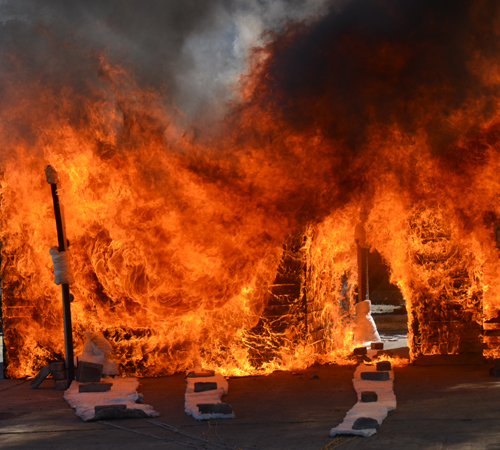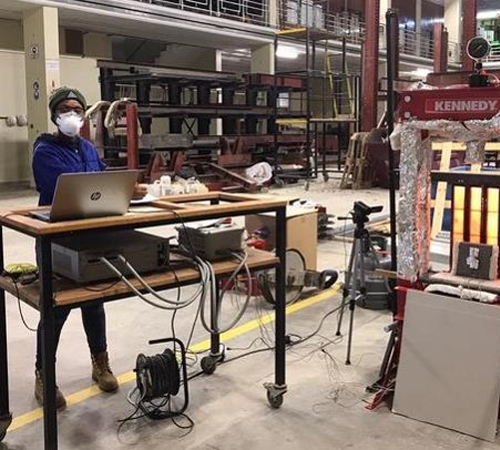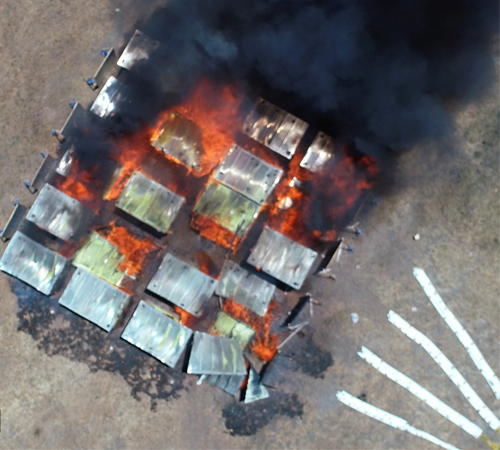
The challenge
For South Africa, fire represents a massive and constant threat, with an average of 35,000-40,000 reported each year. Fires are particularly damaging in urban environments, affecting public infrastructure like hospitals, roads and notably the South African Parliament building in 2022. They pose a severe risk to life, leave countless homeless, and cost billions of Rands in damages.
These accidents, however, are preventable with the help of fire engineers, also referred to as fire protection (USA) or fire safety engineers (UK). This division of engineering specialises in assessing and mitigating risks related to fire, ensuring the safety of buildings and occupants through the design, implementation, and management of fire protection systems and strategies. While vital for effective building design, there is a shortage of fire engineering skills in South Africa and around the world.

The solution
After identifying the significant need for fire engineers, Professor Richard Walls of Stellenbosch University began developing South Africa’s future cohort of fire safety professionals.
Starting as additional electives within the Department of Civil Engineering, he developed two courses and a postgraduate offering in fire engineering with funding from the Engineering X Skills for Safety programme. The courses’ popularity among both in-person and online learners has led to Stellenbosch University launching its own Fire Safety Engineering Masters (MEng) programme in 2024.
The course is aligned to the curricula of other international institutions, following a two-part structure. This includes developing the student’s understanding of fire behaviour, the physics of why things burn and the techniques of fire safety engineering to improve fire safety through design approaches.

The impact
Since its launch, the programme has supported nine MEng and eight PhD students. Also, due to funding from Engineering X, over 70 engineers have been able to attend distance-learning courses as part of their professional development, and 30 students have taken the course in a postgraduate capacity.
The project also led to a fire engineering laboratory being built at Stellenbosch University, –the first of its kind at an African University – contributing to a strong, long-term foundation for the discipline within the continent.
PhD students from the course have directly supported South African fire resilience through experimental research that illuminated serious issues regarding passenger train fire safety. Additionally, the project team compiled a report on the status of the country’s fire safety infrastructure that was included in the South African Institute of Civil Engineering’s national infrastructure report card.
The project has helped to develop some key collaborations, including partnerships between Stellenbosch University and two NGOs promoting the importance of fire engineering in Africa - AfroFire and Kindling. Collaborations with various businesses have led to sponsorship opportunities for employees and students from other countries to attend the distance learning courses.
With fire safety being such a pressing issue in South Africa, this project has succeeded in raising awareness, developing the field, addressing a prominent skills gap, and supporting a generation of young engineers. In line with the vision of the Skills for Safety programme, this project has contributed significantly to the development of a strong foundation for long-term accessible fire engineering education within the African continent to help build a safer world.
Interested in participating in the programme?
Visit our page to learn about upcoming opportunities.
Explore other case studies
Developing digital construction safety skills in Vietnam: a case study
Explore Vietnam's response to safety challenges in its construction sector through developing digital skills. Learn abo…
Empowering women through safer housing innovation in Uganda: a case study
This case study delves into how Smart Havens Africa (SHA) is addressing Uganda's housing shortage. Learn about SHA's in…
